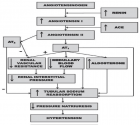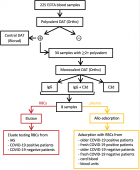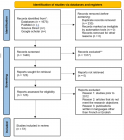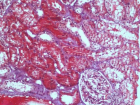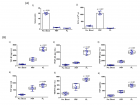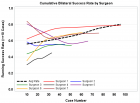Abstract
Short Review
Transcriptome-wide association study: Opportunity and challenges for cancer studies
Kendy Shang and Jingni He*
Published: 11 August, 2022 | Volume 6 - Issue 1 | Pages: 017-021
Genome-wide association studies (GWAS) have uncovered thousands of single nucleotide polymorphism (SNP) loci that are associated with complex traits. However, the majority of GWAS discoveries are located in non-coding regions and the biological mechanisms behind these associations are not well understood. Transcriptome-wide association studies (TWAS) have gained popularity in recent years by generating biological interpretable discoveries and facilitating the identification of novel associations that have been missed by GWAS. TWAS has identified more than hundreds of susceptibility genes for many complex diseases and traits, including cancers. Here, in this review, we first summarize TWAS methods, then discuss the opportunities for cancer studies and finally review current challenges and future directions for this method.
Read Full Article HTML DOI: 10.29328/journal.ibm.1001023 Cite this Article Read Full Article PDF
Keywords:
TWAS; GWAS; Breast cancer; Prostate cancer; Lung cancer
References
- Gamazon ER, Wheeler HE, Shah KP, Mozaffari SV, Aquino-Michaels K, Carroll RJ, Eyler AE, Denny JC; GTEx Consortium, Nicolae DL, Cox NJ, Im HK. A gene-based association method for mapping traits using reference transcriptome data. Nat Genet. 2015 Sep;47(9):1091-8. doi: 10.1038/ng.3367. Epub 2015 Aug 10. PMID: 26258848; PMCID: PMC4552594.
- Gusev A, Ko A, Shi H, Bhatia G, Chung W, Penninx BW, Jansen R, de Geus EJ, Boomsma DI, Wright FA, Sullivan PF, Nikkola E, Alvarez M, Civelek M, Lusis AJ, Lehtimäki T, Raitoharju E, Kähönen M, Seppälä I, Raitakari OT, Kuusisto J, Laakso M, Price AL, Pajukanta P, Pasaniuc B. Integrative approaches for large-scale transcriptome-wide association studies. Nat Genet. 2016 Mar;48(3):245-52. doi: 10.1038/ng.3506. Epub 2016 Feb 8. PMID: 26854917; PMCID: PMC4767558.
- Wu L, Wang J, Cai Q, Cavazos TB, Emami NC, Long J, Shu XO, Lu Y, Guo X, Bauer JA, Pasaniuc B, Penney KL, Freedman ML, Kote-Jarai Z, Witte JS, Haiman CA, Eeles RA, Zheng W; PRACTICAL, CRUK, BPC3, CAPS, PEGASUS Consortia. Identification of Novel Susceptibility Loci and Genes for Prostate Cancer Risk: A Transcriptome-Wide Association Study in Over 140,000 European Descendants. Cancer Res. 2019 Jul 1;79(13):3192-3204. doi: 10.1158/0008-5472.CAN-18-3536. Epub 2019 May 17. PMID: 31101764; PMCID: PMC6606384.
- Wu L, Shi W, Long J, Guo X, Michailidou K, Beesley J, Bolla MK, Shu XO, Lu Y, Cai Q, Al-Ejeh F, Rozali E, Wang Q, Dennis J, Li B, Zeng C, Feng H, Gusev A, Barfield RT, Andrulis IL, Anton-Culver H, Arndt V, Aronson KJ, Auer PL, Barrdahl M, Baynes C, Beckmann MW, Benitez J, Bermisheva M, Blomqvist C, Bogdanova NV, Bojesen SE, Brauch H, Brenner H, Brinton L, Broberg P, Brucker SY, Burwinkel B, Caldés T, Canzian F, Carter BD, Castelao JE, Chang-Claude J, Chen X, Cheng TD, Christiansen H, Clarke CL; NBCS Collaborators, Collée M, Cornelissen S, Couch FJ, Cox D, Cox A, Cross SS, Cunningham JM, Czene K, Daly MB, Devilee P, Doheny KF, Dörk T, Dos-Santos-Silva I, Dumont M, Dwek M, Eccles DM, Eilber U, Eliassen AH, Engel C, Eriksson M, Fachal L, Fasching PA, Figueroa J, Flesch-Janys D, Fletcher O, Flyger H, Fritschi L, Gabrielson M, Gago-Dominguez M, Gapstur SM, García-Closas M, Gaudet MM, Ghoussaini M, Giles GG, Goldberg MS, Goldgar DE, González-Neira A, Guénel P, Hahnen E, Haiman CA, Håkansson N, Hall P, Hallberg E, Hamann U, Harrington P, Hein A, Hicks B, Hillemanns P, Hollestelle A, Hoover RN, Hopper JL, Huang G, Humphreys K, Hunter DJ, Jakubowska A, Janni W, John EM, Johnson N, Jones K, Jones ME, Jung A, Kaaks R, Kerin MJ, Khusnutdinova E, Kosma VM, Kristensen VN, Lambrechts D, Le Marchand L, Li J, Lindström S, Lissowska J, Lo WY, Loibl S, Lubinski J, Luccarini C, Lux MP, MacInnis RJ, Maishman T, Kostovska IM, Mannermaa A, Manson JE, Margolin S, Mavroudis D, Meijers-Heijboer H, Meindl A, Menon U, Meyer J, Mulligan AM, Neuhausen SL, Nevanlinna H, Neven P, Nielsen SF, Nordestgaard BG, Olopade OI, Olson JE, Olsson H, Peterlongo P, Peto J, Plaseska-Karanfilska D, Prentice R, Presneau N, Pylkäs K, Rack B, Radice P, Rahman N, Rennert G, Rennert HS, Rhenius V, Romero A, Romm J, Rudolph A, Saloustros E, Sandler DP, Sawyer EJ, Schmidt MK, Schmutzler RK, Schneeweiss A, Scott RJ, Scott CG, Seal S, Shah M, Shrubsole MJ, Smeets A, Southey MC, Spinelli JJ, Stone J, Surowy H, Swerdlow AJ, Tamimi RM, Tapper W, Taylor JA, Terry MB, Tessier DC, Thomas A, Thöne K, Tollenaar RAEM, Torres D, Truong T, Untch M, Vachon C, Van Den Berg D, Vincent D, Waisfisz Q, Weinberg CR, Wendt C, Whittemore AS, Wildiers H, Willett WC, Winqvist R, Wolk A, Xia L, Yang XR, Ziogas A, Ziv E; kConFab/AOCS Investigators, Dunning AM, Pharoah PDP, Simard J, Milne RL, Edwards SL, Kraft P, Easton DF, Chenevix-Trench G, Zheng W. A transcriptome-wide association study of 229,000 women identifies new candidate susceptibility genes for breast cancer. Nat Genet. 2018 Jul;50(7):968-978. doi: 10.1038/s41588-018-0132-x. Epub 2018 Jun 18. PMID: 29915430; PMCID: PMC6314198.
- Lu Y, Beeghly-Fadiel A, Wu L, Guo X, Li B, Schildkraut JM, Im HK, Chen YA, Permuth JB, Reid BM, Teer JK, Moysich KB, Andrulis IL, Anton-Culver H, Arun BK, Bandera EV, Barkardottir RB, Barnes DR, Benitez J, Bjorge L, Brenton J, Butzow R, Caldes T, Caligo MA, Campbell I, Chang-Claude J, Claes KBM, Couch FJ, Cramer DW, Daly MB, deFazio A, Dennis J, Diez O, Domchek SM, Dörk T, Easton DF, Eccles DM, Fasching PA, Fortner RT, Fountzilas G, Friedman E, Ganz PA, Garber J, Giles GG, Godwin AK, Goldgar DE, Goodman MT, Greene MH, Gronwald J, Hamann U, Heitz F, Hildebrandt MAT, Høgdall CK, Hollestelle A, Hulick PJ, Huntsman DG, Imyanitov EN, Isaacs C, Jakubowska A, James P, Karlan BY, Kelemen LE, Kiemeney LA, Kjaer SK, Kwong A, Le ND, Leslie G, Lesueur F, Levine DA, Mattiello A, May T, McGuffog L, McNeish IA, Merritt MA, Modugno F, Montagna M, Neuhausen SL, Nevanlinna H, Nielsen FC, Nikitina-Zake L, Nussbaum RL, Offit K, Olah E, Olopade OI, Olson SH, Olsson H, Osorio A, Park SK, Parsons MT, Peeters PHM, Pejovic T, Peterlongo P, Phelan CM, Pujana MA, Ramus SJ, Rennert G, Risch H, Rodriguez GC, Rodríguez-Antona C, Romieu I, Rookus MA, Rossing MA, Rzepecka IK, Sandler DP, Schmutzler RK, Setiawan VW, Sharma P, Sieh W, Simard J, Singer CF, Song H, Southey MC, Spurdle AB, Sutphen R, Swerdlow AJ, Teixeira MR, Teo SH, Thomassen M, Tischkowitz M, Toland AE, Trichopoulou A, Tung N, Tworoger SS, van Rensburg EJ, Vanderstichele A, Vega A, Edwards DV, Webb PM, Weitzel JN, Wentzensen N, White E, Wolk A, Wu AH, Yannoukakos D, Zorn KK, Gayther SA, Antoniou AC, Berchuck A, Goode EL, Chenevix-Trench G, Sellers TA, Pharoah PDP, Zheng W, Long J. A Transcriptome-Wide Association Study Among 97,898 Women to Identify Candidate Susceptibility Genes for Epithelial Ovarian Cancer Risk. Cancer Res. 2018 Sep 15;78(18):5419-5430. doi: 10.1158/0008-5472.CAN-18-0951. Epub 2018 Jul 27. PMID: 30054336; PMCID: PMC6139053.
- Guo X, Lin W, Wen W, Huyghe J, Bien S, Cai Q, Harrison T, Chen Z, Qu C, Bao J, Long J, Yuan Y, Wang F, Bai M, Abecasis GR, Albanes D, Berndt SI, Bézieau S, Bishop DT, Brenner H, Buch S, Burnett-Hartman A, Campbell PT, Castellví-Bel S, Chan AT, Chang-Claude J, Chanock SJ, Cho SH, Conti DV, Chapelle A, Feskens EJM, Gallinger SJ, Giles GG, Goodman PJ, Gsur A, Guinter M, Gunter MJ, Hampe J, Hampel H, Hayes RB, Hoffmeister M, Kampman E, Kang HM, Keku TO, Kim HR, Le Marchand L, Lee SC, Li CI, Li L, Lindblom A, Lindor N, Milne RL, Moreno V, Murphy N, Newcomb PA, Nickerson DA, Offit K, Pearlman R, Pharoah PDP, Platz EA, Potter JD, Rennert G, Sakoda LC, Schafmayer C, Schmit SL, Schoen RE, Schumacher FR, Slattery ML, Su YR, Tangen CM, Ulrich CM, van Duijnhoven FJB, Van Guelpen B, Visvanathan K, Vodicka P, Vodickova L, Vymetalkova V, Wang X, White E, Wolk A, Woods MO, Casey G, Hsu L, Jenkins MA, Gruber SB, Peters U, Zheng W. Identifying Novel Susceptibility Genes for Colorectal Cancer Risk From a Transcriptome-Wide Association Study of 125,478 Subjects. Gastroenterology. 2021 Mar;160(4):1164-1178.e6. doi: 10.1053/j.gastro.2020.08.062. Epub 2020 Oct 12. PMID: 33058866; PMCID: PMC7956223.
- Guo X, Lin W, Bao J, Cai Q, Pan X, Bai M, Yuan Y, Shi J, Sun Y, Han MR, Wang J, Liu Q, Wen W, Li B, Long J, Chen J, Zheng W. A Comprehensive cis-eQTL Analysis Revealed Target Genes in Breast Cancer Susceptibility Loci Identified in Genome-wide Association Studies. Am J Hum Genet. 2018 May 3;102(5):890-903. doi: 10.1016/j.ajhg.2018.03.016. PMID: 29727689; PMCID: PMC5986971.
- Chen Z, Wen W, Beeghly-Fadiel A, Shu XO, Díez-Obrero V, Long J, Bao J, Wang J, Liu Q, Cai Q, Moreno V, Zheng W, Guo X. Identifying Putative Susceptibility Genes and Evaluating Their Associations with Somatic Mutations in Human Cancers. Am J Hum Genet. 2019 Sep 5;105(3):477-492. doi: 10.1016/j.ajhg.2019.07.006. Epub 2019 Aug 8. PMID: 31402092; PMCID: PMC6731359.
- Zhou X, Carbonetto P, Stephens M. Polygenic modeling with bayesian sparse linear mixed models. PLoS Genet. 2013;9(2):e1003264. doi: 10.1371/journal.pgen.1003264. Epub 2013 Feb 7. PMID: 23408905; PMCID: PMC3567190.
- Xie R, Wen J, Quitadamo A, Cheng J, Shi X. A deep auto-encoder model for gene expression prediction. BMC Genomics. 2017 Nov 17;18(Suppl 9):845. doi: 10.1186/s12864-017-4226-0. PMID: 29219072; PMCID: PMC5773895.
- Rui Xie AQ, Cheng J, Xinghua Shi. A predictive model of gene expression using a deep learning framework. IEEE International Conference on Bioinformatics and Biomedicine (BIBM). 2016; 676-681.
- GTEx Consortium. The GTEx Consortium atlas of genetic regulatory effects across human tissues. Science. 2020 Sep 11;369(6509):1318-1330. doi: 10.1126/science.aaz1776. PMID: 32913098; PMCID: PMC7737656.
- Chen L, Ge B, Casale FP, Vasquez L, Kwan T, Garrido-Martín D, Watt S, Yan Y, Kundu K, Ecker S, Datta A, Richardson D, Burden F, Mead D, Mann AL, Fernandez JM, Rowlston S, Wilder SP, Farrow S, Shao X, Lambourne JJ, Redensek A, Albers CA, Amstislavskiy V, Ashford S, Berentsen K, Bomba L, Bourque G, Bujold D, Busche S, Caron M, Chen SH, Cheung W, Delaneau O, Dermitzakis ET, Elding H, Colgiu I, Bagger FO, Flicek P, Habibi E, Iotchkova V, Janssen-Megens E, Kim B, Lehrach H, Lowy E, Mandoli A, Matarese F, Maurano MT, Morris JA, Pancaldi V, Pourfarzad F, Rehnstrom K, Rendon A, Risch T, Sharifi N, Simon MM, Sultan M, Valencia A, Walter K, Wang SY, Frontini M, Antonarakis SE, Clarke L, Yaspo ML, Beck S, Guigo R, Rico D, Martens JHA, Ouwehand WH, Kuijpers TW, Paul DS, Stunnenberg HG, Stegle O, Downes K, Pastinen T, Soranzo N. Genetic Drivers of Epigenetic and Transcriptional Variation in Human Immune Cells. Cell. 2016 Nov 17;167(5):1398-1414.e24. doi: 10.1016/j.cell.2016.10.026. PMID: 27863251; PMCID: PMC5119954.
- Mogil LS, Andaleon A, Badalamenti A, Dickinson SP, Guo X, Rotter JI, Johnson WC, Im HK, Liu Y, Wheeler HE. Genetic architecture of gene expression traits across diverse populations. PLoS Genet. 2018 Aug 10;14(8):e1007586. doi: 10.1371/journal.pgen.1007586. PMID: 30096133; PMCID: PMC6105030.
- van der Wijst M, de Vries DH, Groot HE, Trynka G, Hon CC, Bonder MJ, Stegle O, Nawijn MC, Idaghdour Y, van der Harst P, Ye CJ, Powell J, Theis FJ, Mahfouz A, Heinig M, Franke L. The single-cell eQTLGen consortium. Elife. 2020 Mar 9;9:e52155. doi: 10.7554/eLife.52155. PMID: 32149610; PMCID: PMC7077978.
- Barbeira AN, Dickinson SP, Bonazzola R, Zheng J, Wheeler HE, Torres JM, Torstenson ES, Shah KP, Garcia T, Edwards TL, Stahl EA, Huckins LM; GTEx Consortium, Nicolae DL, Cox NJ, Im HK. Exploring the phenotypic consequences of tissue specific gene expression variation inferred from GWAS summary statistics. Nat Commun. 2018 May 8;9(1):1825. doi: 10.1038/s41467-018-03621-1. PMID: 29739930; PMCID: PMC5940825.
- Hu Y, Li M, Lu Q, Weng H, Wang J, Zekavat SM, Yu Z, Li B, Gu J, Muchnik S, Shi Y, Kunkle BW, Mukherjee S, Natarajan P, Naj A, Kuzma A, Zhao Y, Crane PK; Alzheimer’s Disease Genetics Consortium,, Lu H, Zhao H. A statistical framework for cross-tissue transcriptome-wide association analysis. Nat Genet. 2019 Mar;51(3):568-576. doi: 10.1038/s41588-019-0345-7. Epub 2019 Feb 25. PMID: 30804563; PMCID: PMC6788740.
- Gamazon ER, Wheeler HE, Shah KP, Mozaffari SV, Aquino-Michaels K, Carroll RJ, Eyler AE, Denny JC; GTEx Consortium, Nicolae DL, Cox NJ, Im HK. A gene-based association method for mapping traits using reference transcriptome data. Nat Genet. 2015 Sep;47(9):1091-8. doi: 10.1038/ng.3367. Epub 2015 Aug 10. PMID: 26258848; PMCID: PMC4552594.
- Luningham JM, Chen J, Tang S, De Jager PL, Bennett DA, Buchman AS, Yang J. Bayesian Genome-wide TWAS Method to Leverage both cis- and trans-eQTL Information through Summary Statistics. Am J Hum Genet. 2020 Oct 1;107(4):714-726. doi: 10.1016/j.ajhg.2020.08.022. Epub 2020 Sep 21. PMID: 32961112; PMCID: PMC7536614.
- Cao C, Kwok D, Edie S, Li Q, Ding B, Kossinna P, Campbell S, Wu J, Greenberg M, Long Q. kTWAS: integrating kernel machine with transcriptome-wide association studies improves statistical power and reveals novel genes. Brief Bioinform. 2021 Jul 20;22(4):bbaa270. doi: 10.1093/bib/bbaa270. PMID: 33200776.
- Cao C, Kossinna P, Kwok D, Li Q, He J, Su L, Guo X, Zhang Q, Long Q. Disentangling genetic feature selection and aggregation in transcriptome-wide association studies. Genetics. 2022 Feb 4;220(2):iyab216. doi: 10.1093/genetics/iyab216. PMID: 34849857; PMCID: PMC9208638.
- Xu Z, Wu C, Pan W; Alzheimer's Disease Neuroimaging Initiative. Imaging-wide association study: Integrating imaging endophenotypes in GWAS. Neuroimage. 2017 Oct 1;159:159-169. doi: 10.1016/j.neuroimage.2017.07.036. Epub 2017 Jul 20. PMID: 28736311; PMCID: PMC5671364.
- Brandes N, Linial N, Linial M. PWAS: proteome-wide association study-linking genes and phenotypes by functional variation in proteins. Genome Biol. 2020 Jul 14;21(1):173. doi: 10.1186/s13059-020-02089-x. PMID: 32665031; PMCID: PMC7386203.
- Liu J, Li X, Luo XJ. Proteome-wide Association Study Provides Insights Into the Genetic Component of Protein Abundance in Psychiatric Disorders. Biol Psychiatry. 2021 Dec 1;90(11):781-789. doi: 10.1016/j.biopsych.2021.06.022. Epub 2021 Jul 6. PMID: 34454697.
- Wingo TS, Liu Y, Gerasimov ES, Gockley J, Logsdon BA, Duong DM, Dammer EB, Lori A, Kim PJ, Ressler KJ, Beach TG, Reiman EM, Epstein MP, De Jager PL, Lah JJ, Bennett DA, Seyfried NT, Levey AI, Wingo AP. Brain proteome-wide association study implicates novel proteins in depression pathogenesis. Nat Neurosci. 2021 Jun;24(6):810-817. doi: 10.1038/s41593-021-00832-6. Epub 2021 Apr 12. PMID: 33846625; PMCID: PMC8530461.
- Wainberg M, Sinnott-Armstrong N, Mancuso N, Barbeira AN, Knowles DA, Golan D, Ermel R, Ruusalepp A, Quertermous T, Hao K, Björkegren JLM, Im HK, Pasaniuc B, Rivas MA, Kundaje A. Opportunities and challenges for transcriptome-wide association studies. Nat Genet. 2019 Apr;51(4):592-599. doi: 10.1038/s41588-019-0385-z. Epub 2019 Mar 29. PMID: 30926968; PMCID: PMC6777347.
- Mancuso N, Freund MK, Johnson R, Shi H, Kichaev G, Gusev A, Pasaniuc B. Probabilistic fine-mapping of transcriptome-wide association studies. Nat Genet. 2019 Apr;51(4):675-682. doi: 10.1038/s41588-019-0367-1. Epub 2019 Mar 29. PMID: 30926970; PMCID: PMC6619422.
- Feng H, Gusev A, Pasaniuc B, Wu L, Long J, Abu-Full Z, Aittomäki K, Andrulis IL, Anton-Culver H, Antoniou AC, Arason A, Arndt V, Aronson KJ, Arun BK, Asseryanis E, Auer PL, Azzollini J, Balmaña J, Barkardottir RB, Barnes DR, Barrowdale D, Beckmann MW, Behrens S, Benitez J, Bermisheva M, Białkowska K, Blanco A, Blomqvist C, Boeckx B, Bogdanova NV, Bojesen SE, Bolla MK, Bonanni B, Borg A, Brauch H, Brenner H, Briceno I, Broeks A, Brüning T, Burwinkel B, Cai Q, Caldés T, Caligo MA, Campbell I, Canisius S, Campa D, Carter BD, Carter J, Castelao JE, Chang-Claude J, Chanock SJ, Christiansen H, Chung WK, Claes KBM, Clarke CL; GEMO Study Collaborators; EMBRACE Collaborators; GC-HBOC study Collaborators, Couch FJ, Cox A, Cross SS, Cybulski C, Czene K, Daly MB, de la Hoya M, De Leeneer K, Dennis J, Devilee P, Diez O, Domchek SM, Dörk T, Dos-Santos-Silva I, Dunning AM, Dwek M, Eccles DM, Ejlertsen B, Ellberg C, Engel C, Eriksson M, Fasching PA, Fletcher O, Flyger H, Fostira F, Friedman E, Fritschi L, Frost D, Gabrielson M, Ganz PA, Gapstur SM, Garber J, García-Closas M, García-Sáenz JA, Gaudet MM, Giles GG, Glendon G, Godwin AK, Goldberg MS, Goldgar DE, González-Neira A, Greene MH, Gronwald J, Guénel P, Haiman CA, Hall P, Hamann U, Hake C, He W, Heyworth J, Hogervorst FBL, Hollestelle A, Hooning MJ, Hoover RN, Hopper JL, Huang G, Hulick PJ, Humphreys K, Imyanitov EN; ABCTB Investigators; HEBON Investigators; BCFR Investigators; OCGN Investigators, Isaacs C, Jakimovska M, Jakubowska A, James P, Janavicius R, Jankowitz RC, John EM, Johnson N, Joseph V, Jung A, Karlan BY, Khusnutdinova E, Kiiski JI, Konstantopoulou I, Kristensen VN, Laitman Y, Lambrechts D, Lazaro C, Leroux D, Leslie G, Lester J, Lesueur F, Lindor N, Lindström S, Lo WY, Loud JT, Lubiński J, Makalic E, Mannermaa A, Manoochehri M, Manoukian S, Margolin S, Martens JWM, Martinez ME, Matricardi L, Maurer T, Mavroudis D, McGuffog L, Meindl A, Menon U, Michailidou K, Kapoor PM, Miller A, Montagna M, Moreno F, Moserle L, Mulligan AM, Muranen TA, Nathanson KL, Neuhausen SL, Nevanlinna H, Nevelsteen I, Nielsen FC, Nikitina-Zake L, Offit K, Olah E, Olopade OI, Olsson H, Osorio A, Papp J, Park-Simon TW, Parsons MT, Pedersen IS, Peixoto A, Peterlongo P, Peto J, Pharoah PDP, Phillips KA, Plaseska-Karanfilska D, Poppe B, Pradhan N, Prajzendanc K, Presneau N, Punie K, Pylkäs K, Radice P, Rantala J, Rashid MU, Rennert G, Risch HA, Robson M, Romero A, Saloustros E, Sandler DP, Santos C, Sawyer EJ, Schmidt MK, Schmidt DF, Schmutzler RK, Schoemaker MJ, Scott RJ, Sharma P, Shu XO, Simard J, Singer CF, Skytte AB, Soucy P, Southey MC, Spinelli JJ, Spurdle AB, Stone J, Swerdlow AJ, Tapper WJ, Taylor JA, Teixeira MR, Terry MB, Teulé A, Thomassen M, Thöne K, Thull DL, Tischkowitz M, Toland AE, Tollenaar RAEM, Torres D, Truong T, Tung N, Vachon CM, van Asperen CJ, van den Ouweland AMW, van Rensburg EJ, Vega A, Viel A, Vieiro-Balo P, Wang Q, Wappenschmidt B, Weinberg CR, Weitzel JN, Wendt C, Winqvist R, Yang XR, Yannoukakos D, Ziogas A, Milne RL, Easton DF, Chenevix-Trench G, Zheng W, Kraft P, Jiang X. Transcriptome-wide association study of breast cancer risk by estrogen-receptor status. Genet Epidemiol. 2020 Jul;44(5):442-468. doi: 10.1002/gepi.22288. Epub 2020 Mar 1. PMID: 32115800; PMCID: PMC7987299.
- Gao G, Pierce BL, Olopade OI, Im HK, Huo D. Trans-ethnic predicted expression genome-wide association analysis identifies a gene for estrogen receptor-negative breast cancer. PLoS Genet. 2017 Sep 28;13(9):e1006727. doi: 10.1371/journal.pgen.1006727. PMID: 28957356; PMCID: PMC5619687.
- Hoffman JD, Graff RE, Emami NC, Tai CG, Passarelli MN, Hu D, Huntsman S, Hadley D, Leong L, Majumdar A, Zaitlen N, Ziv E, Witte JS. Cis-eQTL-based trans-ethnic meta-analysis reveals novel genes associated with breast cancer risk. PLoS Genet. 2017 Mar 31;13(3):e1006690. doi: 10.1371/journal.pgen.1006690. PMID: 28362817; PMCID: PMC5391966.
- Ferreira MA, Gamazon ER, Al-Ejeh F, Aittomäki K, Andrulis IL, Anton-Culver H, Arason A, Arndt V, Aronson KJ, Arun BK, Asseryanis E, Azzollini J, Balmaña J, Barnes DR, Barrowdale D, Beckmann MW, Behrens S, Benitez J, Bermisheva M, Białkowska K, Blomqvist C, Bogdanova NV, Bojesen SE, Bolla MK, Borg A, Brauch H, Brenner H, Broeks A, Burwinkel B, Caldés T, Caligo MA, Campa D, Campbell I, Canzian F, Carter J, Carter BD, Castelao JE, Chang-Claude J, Chanock SJ, Christiansen H, Chung WK, Claes KBM, Clarke CL; EMBRACE Collaborators; GC-HBOC Study Collaborators; GEMO Study Collaborators, Couch FJ, Cox A, Cross SS, Czene K, Daly MB, de la Hoya M, Dennis J, Devilee P, Diez O, Dörk T, Dunning AM, Dwek M, Eccles DM, Ejlertsen B, Ellberg C, Engel C, Eriksson M, Fasching PA, Fletcher O, Flyger H, Friedman E, Frost D, Gabrielson M, Gago-Dominguez M, Ganz PA, Gapstur SM, Garber J, García-Closas M, García-Sáenz JA, Gaudet MM, Giles GG, Glendon G, Godwin AK, Goldberg MS, Goldgar DE, González-Neira A, Greene MH, Gronwald J, Guénel P, Haiman CA, Hall P, Hamann U, He W, Heyworth J, Hogervorst FBL, Hollestelle A, Hoover RN, Hopper JL, Hulick PJ, Humphreys K, Imyanitov EN; ABCTB Investigators; HEBON Investigators; BCFR Investigators, Isaacs C, Jakimovska M, Jakubowska A, James PA, Janavicius R, Jankowitz RC, John EM, Johnson N, Joseph V, Karlan BY, Khusnutdinova E, Kiiski JI, Ko YD, Jones ME, Konstantopoulou I, Kristensen VN, Laitman Y, Lambrechts D, Lazaro C, Leslie G, Lester J, Lesueur F, Lindström S, Long J, Loud JT, Lubiński J, Makalic E, Mannermaa A, Manoochehri M, Margolin S, Maurer T, Mavroudis D, McGuffog L, Meindl A, Menon U, Michailidou K, Miller A, Montagna M, Moreno F, Moserle L, Mulligan AM, Nathanson KL, Neuhausen SL, Nevanlinna H, Nevelsteen I, Nielsen FC, Nikitina-Zake L, Nussbaum RL, Offit K, Olah E, Olopade OI, Olsson H, Osorio A, Papp J, Park-Simon TW, Parsons MT, Pedersen IS, Peixoto A, Peterlongo P, Pharoah PDP, Plaseska-Karanfilska D, Poppe B, Presneau N, Radice P, Rantala J, Rennert G, Risch HA, Saloustros E, Sanden K, Sawyer EJ, Schmidt MK, Schmutzler RK, Sharma P, Shu XO, Simard J, Singer CF, Soucy P, Southey MC, Spinelli JJ, Spurdle AB, Stone J, Swerdlow AJ, Tapper WJ, Taylor JA, Teixeira MR, Terry MB, Teulé A, Thomassen M, Thöne K, Thull DL, Tischkowitz M, Toland AE, Torres D, Truong T, Tung N, Vachon CM, van Asperen CJ, van den Ouweland AMW, van Rensburg EJ, Vega A, Viel A, Wang Q, Wappenschmidt B, Weitzel JN, Wendt C, Winqvist R, Yang XR, Yannoukakos D, Ziogas A, Kraft P, Antoniou AC, Zheng W, Easton DF, Milne RL, Beesley J, Chenevix-Trench G. Genome-wide association and transcriptome studies identify target genes and risk loci for breast cancer. Nat Commun. 2019 Apr 15;10(1):1741. doi: 10.1038/s41467-018-08053-5. PMID: 30988301; PMCID: PMC6465407.
- Mancuso N, Gayther S, Gusev A, Zheng W, Penney KL, Kote-Jarai Z, Eeles R, Freedman M, Haiman C, Pasaniuc B; PRACTICAL consortium. Large-scale transcriptome-wide association study identifies new prostate cancer risk regions. Nat Commun. 2018 Oct 4;9(1):4079. doi: 10.1038/s41467-018-06302-1. Erratum in: Nat Commun. 2019 Jan 8;10(1):171. PMID: 30287866; PMCID: PMC6172280.
- Larson NB, McDonnell SK, Fogarty Z, Liu Y, French AJ, Tillmans LS, Cheville JC, Wang L, Schaid DJ, Thibodeau SN. A microRNA Transcriptome-wide Association Study of Prostate Cancer Risk. Front Genet. 2022 Mar 30;13:836841. doi: 10.3389/fgene.2022.836841. PMID: 35432445; PMCID: PMC9006872.
- Bade BC, Dela Cruz CS. Lung Cancer 2020: Epidemiology, Etiology, and Prevention. Clin Chest Med. 2020 Mar;41(1):1-24. doi: 10.1016/j.ccm.2019.10.001. PMID: 32008623.
- Bossé Y, Li Z, Xia J, Manem V, Carreras-Torres R, Gabriel A, Gaudreault N, Albanes D, Aldrich MC, Andrew A, Arnold S, Bickeböller H, Bojesen SE, Brennan P, Brunnstrom H, Caporaso N, Chen C, Christiani DC, Field JK, Goodman G, Grankvist K, Houlston R, Johansson M, Johansson M, Kiemeney LA, Lam S, Landi MT, Lazarus P, Le Marchand L, Liu G, Melander O, Rennert G, Risch A, Rosenberg SM, Schabath MB, Shete S, Song Z, Stevens VL, Tardon A, Wichmann HE, Woll P, Zienolddiny S, Obeidat M, Timens W, Hung RJ, Joubert P, Amos CI, McKay JD. Transcriptome-wide association study reveals candidate causal genes for lung cancer. Int J Cancer. 2020 Apr 1;146(7):1862-1878. doi: 10.1002/ijc.32771. Epub 2019 Dec 9. PMID: 31696517; PMCID: PMC7008463.
- Li B, Ritchie MD. From GWAS to Gene: Transcriptome-Wide Association Studies and Other Methods to Functionally Understand GWAS Discoveries. Front Genet. 2021 Sep 30;12:713230. doi: 10.3389/fgene.2021.713230. PMID: 34659337; PMCID: PMC8515949.
- Li B, Verma SS, Veturi YC, Verma A, Bradford Y, Haas DW, Ritchie MD. Evaluation of PrediXcan for prioritizing GWAS associations and predicting gene expression. Pac Symp Biocomput. 2018;23:448-459. PMID: 29218904; PMCID: PMC5749400.
- Boyle EA, Li YI, Pritchard JK. An Expanded View of Complex Traits: From Polygenic to Omnigenic. Cell. 2017 Jun 15;169(7):1177-1186. doi: 10.1016/j.cell.2017.05.038. PMID: 28622505; PMCID: PMC5536862.
- Liu X, Li YI, Pritchard JK. Trans Effects on Gene Expression Can Drive Omnigenic Inheritance. Cell. 2019 May 2;177(4):1022-1034.e6. doi: 10.1016/j.cell.2019.04.014. PMID: 31051098; PMCID: PMC6553491.
- Amariuta T, Luo Y, Gazal S, Davenport EE, van de Geijn B, Ishigaki K, Westra HJ, Teslovich N, Okada Y, Yamamoto K; RACI Consortium, GARNET Consortium, Price AL, Raychaudhuri S. IMPACT: Genomic Annotation of Cell-State-Specific Regulatory Elements Inferred from the Epigenome of Bound Transcription Factors. Am J Hum Genet. 2019 May 2;104(5):879-895. doi: 10.1016/j.ajhg.2019.03.012. Epub 2019 Apr 18. PMID: 31006511; PMCID: PMC6506796.
- Zhang W, Voloudakis G, Rajagopal VM, Readhead B, Dudley JT, Schadt EE, Björkegren JLM, Kim Y, Fullard JF, Hoffman GE, Roussos P. Integrative transcriptome imputation reveals tissue-specific and shared biological mechanisms mediating susceptibility to complex traits. Nat Commun. 2019 Aug 23;10(1):3834. doi: 10.1038/s41467-019-11874-7. PMID: 31444360; PMCID: PMC6707297.
- Piasecka B, Duffy D, Urrutia A, Quach H, Patin E, Posseme C, Bergstedt J, Charbit B, Rouilly V, MacPherson CR, Hasan M, Albaud B, Gentien D, Fellay J, Albert ML, Quintana-Murci L; Milieu Intérieur Consortium. Distinctive roles of age, sex, and genetics in shaping transcriptional variation of human immune responses to microbial challenges. Proc Natl Acad Sci U S A. 2018 Jan 16;115(3):E488-E497. doi: 10.1073/pnas.1714765115. Epub 2017 Dec 27. PMID: 29282317; PMCID: PMC5776984.
Figures:
Similar Articles
-
Similarity between Some Biological Systems, Organotropism and Metastatic Process: Active Role Played By Secondary Organ?Luisetto M*,Behzad Nili-Ahmadabadi,Hossein Nili-Ahmadabadi,Ghulam Rasool Mashori,Gamal Abdul Hamid,Kausar Rehman Khan,Behrooz Nili-Ahmadabadi,Ahmed Yesvi Rafa,Luca Cabianca. Similarity between Some Biological Systems, Organotropism and Metastatic Process: Active Role Played By Secondary Organ? . . 2018 doi: 10.29328/journal.ibm.1001012; 2: 019-051
-
Transcriptome-wide association study: Opportunity and challenges for cancer studiesKendy Shang,Jingni He*. Transcriptome-wide association study: Opportunity and challenges for cancer studies. . 2022 doi: 10.29328/journal.ibm.1001023; 6: 017-021
Recently Viewed
-
A Gateway to Metal Resistance: Bacterial Response to Heavy Metal Toxicity in the Biological EnvironmentLoai Aljerf*,Nuha AlMasri. A Gateway to Metal Resistance: Bacterial Response to Heavy Metal Toxicity in the Biological Environment. Ann Adv Chem. 2018: doi: 10.29328/journal.aac.1001012; 2: 032-044
-
Obesity in Patients with Chronic Obstructive Pulmonary Disease as a Separate Clinical PhenotypeDaria A Prokonich*, Tatiana V Saprina, Ekaterina B Bukreeva. Obesity in Patients with Chronic Obstructive Pulmonary Disease as a Separate Clinical Phenotype. J Pulmonol Respir Res. 2024: doi: 10.29328/journal.jprr.1001060; 8: 053-055
-
Current Practices for Severe Alpha-1 Antitrypsin Deficiency Associated COPD and EmphysemaMJ Nicholson*, M Seigo. Current Practices for Severe Alpha-1 Antitrypsin Deficiency Associated COPD and Emphysema. J Pulmonol Respir Res. 2024: doi: 10.29328/journal.jprr.1001058; 8: 044-047
-
Navigating Neurodegenerative Disorders: A Comprehensive Review of Current and Emerging Therapies for Neurodegenerative DisordersShashikant Kharat*, Sanjana Mali*, Gayatri Korade, Rakhi Gaykar. Navigating Neurodegenerative Disorders: A Comprehensive Review of Current and Emerging Therapies for Neurodegenerative Disorders. J Neurosci Neurol Disord. 2024: doi: 10.29328/journal.jnnd.1001095; 8: 033-046
-
Metastatic Brain Melanoma: A Rare Case with Review of LiteratureNeha Singh,Gaurav Raj,Akshay Kumar,Deepak Kumar Singh,Shivansh Dixit,Kaustubh Gupta*. Metastatic Brain Melanoma: A Rare Case with Review of Literature. J Radiol Oncol. 2025: doi: 10.29328/journal.jro.1001080; 9: 050-053
Most Viewed
-
Evaluation of Biostimulants Based on Recovered Protein Hydrolysates from Animal By-products as Plant Growth EnhancersH Pérez-Aguilar*, M Lacruz-Asaro, F Arán-Ais. Evaluation of Biostimulants Based on Recovered Protein Hydrolysates from Animal By-products as Plant Growth Enhancers. J Plant Sci Phytopathol. 2023 doi: 10.29328/journal.jpsp.1001104; 7: 042-047
-
Sinonasal Myxoma Extending into the Orbit in a 4-Year Old: A Case PresentationJulian A Purrinos*, Ramzi Younis. Sinonasal Myxoma Extending into the Orbit in a 4-Year Old: A Case Presentation. Arch Case Rep. 2024 doi: 10.29328/journal.acr.1001099; 8: 075-077
-
Feasibility study of magnetic sensing for detecting single-neuron action potentialsDenis Tonini,Kai Wu,Renata Saha,Jian-Ping Wang*. Feasibility study of magnetic sensing for detecting single-neuron action potentials. Ann Biomed Sci Eng. 2022 doi: 10.29328/journal.abse.1001018; 6: 019-029
-
Pediatric Dysgerminoma: Unveiling a Rare Ovarian TumorFaten Limaiem*, Khalil Saffar, Ahmed Halouani. Pediatric Dysgerminoma: Unveiling a Rare Ovarian Tumor. Arch Case Rep. 2024 doi: 10.29328/journal.acr.1001087; 8: 010-013
-
Physical activity can change the physiological and psychological circumstances during COVID-19 pandemic: A narrative reviewKhashayar Maroufi*. Physical activity can change the physiological and psychological circumstances during COVID-19 pandemic: A narrative review. J Sports Med Ther. 2021 doi: 10.29328/journal.jsmt.1001051; 6: 001-007

HSPI: We're glad you're here. Please click "create a new Query" if you are a new visitor to our website and need further information from us.
If you are already a member of our network and need to keep track of any developments regarding a question you have already submitted, click "take me to my Query."







